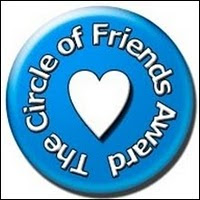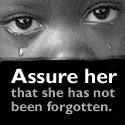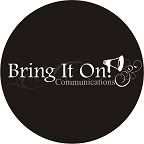As I have noted previously on my blog, the church I attend is spearheading an initiative in the Southeast Michigan area known as E.A.C.H. The acronym stands for Everyone A Chance to Hear. You can learn more about it at the website and the Facebook page. I am excited to see what God has in store here in 2011.
That being the case, I was excited to hear about a new book by Zondervan entitled ‘To Transform a City: Whole Church Whole Gospel Whole City ’ by Eric Swanson and Sam Williams.
’ by Eric Swanson and Sam Williams.
Here is the synopsis of this book:
Is your church a transformational agent in your community? In these pages, Eric Swanson and Sam Williams examine the foundations, history, theology, and practical methods of community transformation. You’ll learn how to engage your surroundings community with good news and good deeds – real actions that produce real change in the real world.
Eric Swanson and Sam Williams have been around the world trying to discover examples and principles of city transformation. They share effective and proven ways for ministry leaders to mobilize for spiritual impact and to partner with other community organizations for societal good. This book is a call to action for spiritual and societal transformation.
To Transform a City is a timely, compelling book that helps readers engage the reality of cities, the potential of their communities, and the broad strategies churches and missional leaders need for kingdom impact.
is a timely, compelling book that helps readers engage the reality of cities, the potential of their communities, and the broad strategies churches and missional leaders need for kingdom impact.
Here are the biographies of these authors:
Eric Swanson is a missional leadership specialist with Leadership Network, leading initiatives with externally focused churches that are missionally engaging their communities, cities, and the world. He is coauthor of The Externally Focused Church (Group, 2004), The Externally Focused Life
(Group, 2004), The Externally Focused Life (Group, 2009), and The Externally Focused Quest
(Group, 2009), and The Externally Focused Quest (Jossey Bass, 2010). He lives in Louisville, Colorado, with his wife, Liz, and enjoys reading, blogging, photography, cooking, travel, and good coffee.
(Jossey Bass, 2010). He lives in Louisville, Colorado, with his wife, Liz, and enjoys reading, blogging, photography, cooking, travel, and good coffee.
Sam Williams is the codirector of Vision San Diego, a coalition of 200 public, private, and not-for-profit sector organizations working together to serve San Diego. He was a pastor for 35 years, a seminary professor, has planted 13 churches, and is a church and leadership consultant. He lives in San Diego with his wife, Nancy, and loves books, movies, and loving on his grandkids.
Here is Mr. Swanson (in Rome) talking about his book:
I loved the approach that they advocate in the Foreword:
I loved the approach that they advocate in the Foreword:
Jesus loved parties. For good reason. His Father has a penchant for them. Jesus once said that angels are having parties in heaven all the time; then he told the story about a wayward son’s return that included a party, just so we could understand the Father’s love for parties…
If we claim to be Jesus’ followers, then we need to pick up on this part of his missional methodology. It’s time for the church to call a party! A special kind of party. Not a party where people are invited to come in. Rather it’s a street party. The church is not the honoree; the community is. It’s a party where the church acts as host and servant, just like Jesus did at his last earthly party with his disciples. It’s not a party to built up the church. It’s a party to strengthen the community. (p. 9)
In the Introduction, the authors explain who this book is geared toward:
For the past several years, we have been engaging with city leaders in cities large and small in the United States and around the world. Broadly speaking, this book is for anyone who has an interest in cities and for those who want to have a part in what God is doing in and through the city. Since 2007, more people live in cities than in rural areas – and that is a trend that will never reverse. To effectively serve God’s purposes in the future, we must come to understand the city.
This book is for those who want to live missionally. That’s an important concept to grasp, especially for the time we live in today. Our understanding of the church is shifting from seeing it as a place where the many send the few (“Lord, thank you for raising up that dear, sacrificial family to faithfully work in Guatemala”) to seeing it as a place where the few equip and send the many (Eph. 4:11-12). Missional thinking embraces the belief that God intends for every one of his children to be living on mission, partnering with him in his redemptive mission in the world. (pp. 20-21)
They go on to explain their mission:
For the past few years, we have adopted this mission four our lives: “To change the world by engaging the church worldwide in the needs and dreams of their communities so as to bring about spiritual and societal transformation.” This mission statement is not something we want to leave written in a notebook or engraved on a plaque on the wall. We want it to be written on our hearts in such a way that we are able to say yes or no appropriately when opportunities arise.
Finally, we invite you to join us as a co-laborer in the mission. The word translated as “fellow worker” (used some thirteen times in the New Testament) is the Greek word synergos, from which comes the English word synergy. We like to think of synergy as the force that allows us to play off of and maximize our individual strengths. None of us, as individuals, can ever be as smart as all of us working together. When synergy occurs, we are able to exceed our individual potential: 1 + 1 =>2. As co-laborers, we can not only accomplish more, but we also become better people in the process of sharing the load. That’s what this book is about. Will you join us in the work as we seek to better understand what God is doing in and through the cities of this world? (pp. 22-23)
There are six reasons why we need to engage with cities (p. 30):
1. Cities have a transforming effect on people.
2. Cities form a creative center.
3. Cities create fertile ground for thinking and receptivity.
4. Cities can help people live more efficiently and productively.
5. Cities are valued by God.
6. The early Christian movement was primarily urban.
Fortunately for us, the Bible provides a blueprint for what a healthy community should look like:
Have you ever asked yourself, “If God were to build a city from the ground up, what would it look like?” Amazingly, there are actually passages of Scripture that describe just such a city. When God envisions the New Jerusalem in Isaiah 65:17-25, he outlines the elements that must be in place for a healthy, whole community where his shalom (peace and wholeness) is present. This city to be built by God is a place where
· there is joy (v. 19);
· there is an absence of weeping and crying (v. 19);
· there is no infant mortality (v. 20);
· people live out their full lives (v. 20);
· people will build houses and live in them (v. 21-22);
· people will sow and reap (v. 21-22)
· there is fulfilling and meaningful work (v. 22);
· there is confidence that the next generation will face a better life (v. 23);
· people experience the blessing of God (v. 23);
· there is intergenerational family support with family structures intact (v. 23);
· there are rapid answers to prayer (v. 24);
· there is an absence of violence (v. 25). (p. 56)
In order for a city to be transformed, we need an understanding of the Kingdom of God:
The church serves as a living proof of the kingdom, a community where the world can see what marriage, family life, business practices, work habits, generosity, mercy, race relations – all of life – look like when lived under the rules and authority of Jesus Christ. But the church is not a closed community. We are commanded to go out into the world,
serving as witnesses to the King and his kingdom. Spreading the kingdom of God is more than simply winning men and women to Christ. It involves working toward shalom and the redemption of structures, individuals, families, and relationships as well as surprising others with unexpected deeds of grace, mercy and justice (Mic. 6:8). The church is called to create an attractive and compelling alternative, showing what life is like when lived under the reign of Christ. (p. 81)
In Chapter Four, entitled ‘Transforming Power,’ the gentlemen give examples of cities throughout history which have been transformed as a result of the Gospel of Jesus Christ. Examples are provided from the periods of the Early Church, Early Medieval Times, the Middle Ages, the Reformation, the Industrial Age, and the Black Church. Other examples include Catholics throughout the centuries, as well as the influence of John Wesley:
Wesley practiced what he preached – “There is no holiness apart from social holiness.” Among other things, he campaigned against the slave trade, agitated for prison and labor reform (including child labor), set up loan funds for the poor, opened a dispensary to distribute medicines to the poor, worked to solve unemployment, and personally gave away considerable sums of money to people in need. Wesley’s life was contagious. “The church was producing a different kind of lay person who were spending three hour daily for the work of the kingdom and giving much of their income toward its building.” (p. 94)
It is important that churches be unified in this effort; this is accomplished in an eight step process:
1. Define geographical regions.
2. Identify the “anchor church” pastors in those regions.
3. Gather the anchor church pastors together to consider the question, “What could we accomplish together that we could not do alone?”
4. Develop personal pastoral relationships by praying, planning, and playing together.
5. Partner to address a community need.
6. Plan a community catalytic event to stimulate and inspire collaboration.
7. Celebrate regularly with your local congregation what God is doing in the community through the body of Christ.
8. Cooperate with the Holy Spirit as you pray, plan, and do together. (pp. 113-114)
In the chapter entitled, ‘What’s Next?,’ the authors suggest six practical things that can be done to get started. I was especially interested in # 6:
6. Remember this is a work of God, who uses yielded people of faith, prayer, and action. The world can be transformed only by those who themselves have been transformed by God’s Spirit. If your own life is not a witness to this, get started today (or tomorrow, if you are reading this at night). Begin praying and seeking out like-minded, like-hearted people who want to change the world. Every movement of God starts with just one passionate person who says yes. We tend to overestimate what we can accomplish in a single year and underestimate what we can get done in five years. A Chinese proverb says, “The best time to plant a tree is ten years ago.” But there is a corollary to this that is often left out: “The second best time to plant a tree is today.” We may not have done what we could have done in the past, but there is no time like today to begin. (p. 200)
Amen to that!
Each chapter in this book ends with Questions for Reflection and Discussion; therefore, it is perfect for small group and individual study.
This is a terrific book, and it’s being released at the perfect time for the E.A.C.H. initiative! I definitely plan on recommending this book to the pastoral staff at our church, and I look forward to seeing what God does in the greater Metro Detroit area in 2011!
You can order this book here .
.
This book was provided by Zondervan for review and giveaway purposes.
_______________________________________
I have one copy of this book to pass along; thanks to Zondervan for generously providing this copy!
There are several ways to gain entry:
1) Leave a comment here on the blog, telling me what your church does to reach your community – or what you wish it would do! Please make sure to leave your email address in this format – sample[at]gmail[dot]com.
2) Follow me on Twitter; if you are already a follower, that counts, too! Please leave a separate comment to that effect.
3) Tweet the following on Twitter:
Enter to win a copy of ‘To Transform a City’ by @ericswanson & @engagingchurch from @andrealschultz. http://goo.gl/e5Wkf Please RT!
Please leave a comment with the link to your tweet. You can tweet up to once per day. Please add a new comment for each tweet.
4) Follow me as a Google Friend on this blog; if you are already a Friend, that counts, too! Please leave a separate comment to that effect.
5) Become my Facebook friend. Please leave a separate comment to that effect.
6) Follow this blog as a NetWorked Blog Follower after you’ve become my Facebook friend. Please leave a separate comment to that effect.
So there are numerous chances to enter and therefore win! Please limit one entry per option (except for the Twitter option), and don’t forget to include your email address, or, sad to say, the Random Number Generator will have to choose a different winner.
This giveaway is for U.S. residents only. The deadline for entry is Friday, January 28, 2011 at 11:59 p.m. EST. One winner will be chosen via the Random Number Generator on Saturday, January 29, 2011 and will be contacted via email. The best to all of you!






























.jpg)







13 comments:
My church has a bus ministry and we pick up kids who live in trailer parks and motels. I wish we would provide more free meals for the people we bring to church though.
I'm a follower!
parisakins@gmail.com
My church puts on a dance for people with special needs. Along with the dancing there is free food, a musical performance in costume, and a pro photo booth with the musical characters.
californiarick@hotmail.com
My church does big, community wide outreaches every quarter with different themes. The community is always very responsive and it's a great way to unite the church in purpose.
Our church is planning our third annual Heart on Fire free Christian music/entertainment event in our small rural community. This year it will be in a local park on a main highway, so plenty of opportunity to attract community members as well as folks just passing through. Along with sharing the gospel, the event also serves to increase awareness of our food pantry. deborahjoy[at]gmail[dot]com
@HookJoy now following you on Twitter! deborahjoy[at]gmail[dot]com
I tweeted per #3 but am not sure how to give you a link to the tweet. This might be it: http://twitter.com/#!/hookjoy @HookJoy deborahjoy[at]gmail[dot]com
Following your blog as a Google Friend. deborahjoy[at]gmail[dot]com
Sent friend request on Facebook. deborahjoy[at]gmail[dot]com
About once a month my church goes out and has door-to-door evangelism, sharing the gospel with our neighbors.
seizethebookblog(at)gmail(dot)com
I am a Twitter follower.
seizethebookblog(at)gmail(dot)com
I am a GFC follower.
seizethebookblog(at)gmail(dot)com
I am a Facebook Friend.
seizethebookblog(at)gmail(dot)com
I follow on NetWorked Blogs.
seizethebookblog(at)gmail(dot)com
Post a Comment